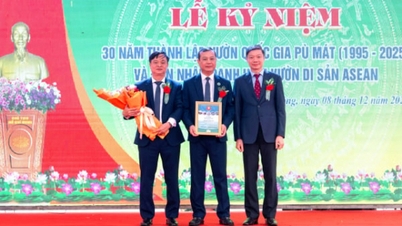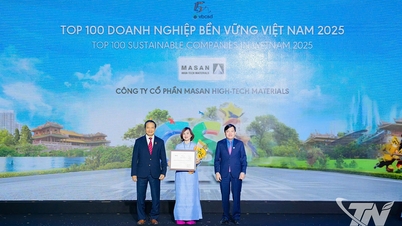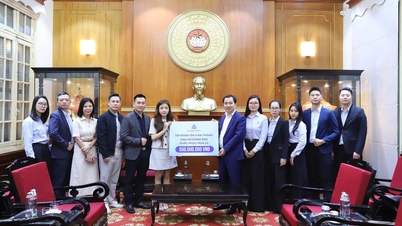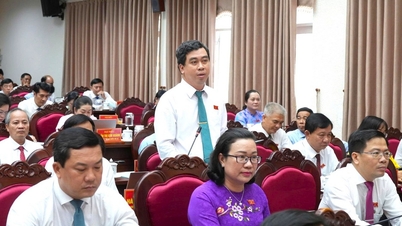
In recent years, our Party has issued strategic orientations on digital transformation, typically Resolution No. 52-NQ/TW dated September 27, 2019 of the Politburo on participating in the Fourth Industrial Revolution and especially Resolution No. 57-NQ/TW dated December 22, 2024 of the Politburo identifying digital transformation as a strategic breakthrough.
The Government has issued national strategies on digital transformation (Decision No. 749/QD-TTg), digital government (Decision No. 942/QD-TTg), digital economy and digital society (Decision No. 411/QD-TTg). Most recently, the Central Steering Committee on Science, Technology, Innovation and Digital Transformation was established, along with the Government's Action Program (Resolution No. 71/NQ-CP) to resolutely implement Resolution No. 57-NQ/TW.
According to the assessment of the Ministry of Science and Technology, under the comprehensive leadership of the Party, the determination and drastic measures of the State, the efforts of ministries, branches and localities, the national digital transformation has achieved many impressive results, especially in 2025 - the breakthrough year of comprehensive digital transformation in the spirit of Resolution No. 57-NQ/TW. Vietnam's Digital Government ranking in 2024 increased by 15 places compared to 2022, from 86th to 71st out of 193 countries according to the United Nations assessment. The rate of online public services used by people increased, with online settlement records reaching nearly 40%, 9 times higher than in 2019.
Regarding digital economic development, the revenue of the information technology industry reached more than VND2.7 million billion, up 24% over the same period, reaching 65% of the yearly plan. The export turnover of hardware and electronics reached VND2.4 million billion, up 29%, reaching 60% of the plan. The digital economy currently accounts for about 14-15% of GDP and is moving towards the target of 20% of GDP by 2025. These figures show that the digital sector is becoming an important growth driver of the economy.
Regarding the development of digital society and digital citizens, competent authorities have issued about 21.8 million digital signature certificates, reaching 35.18% of the adult population. The Ministry of Public Security has issued 17.5 million Citizen Identification Cards and activated more than 64 million VNeID accounts.
Regarding the development of digital infrastructure, telecommunications networks and broadband have covered 99.3% of villages and hamlets nationwide. Mobile broadband access speed is 146.64 Mbps, up 68% compared to December 2024, ranking 20th in the world. The 5G coverage rate is 26%. Thus, digital infrastructure is ready for the service boom phase, serving well the digital government, digital economy and digital society.
Deputy Minister of Science and Technology Vu Hai Quan said that after 5 years of implementing digital transformation, we have passed the initial stage. In the period of 2025-2030, we must transform the digital achievements into economic growth, increase productivity, national competitiveness, improve governance efficiency and decision-making quality at all levels.
Based on the synchronously developed digital infrastructure, the next phase of digital transformation is to popularize digital skills and tools for people, along with the government increasing the application of technology to better serve the people.
The leader of the National Digital Transformation Agency (Ministry of Science and Technology) commented that in the near future, we will witness a State operating on the principle of “digital from the start”. Management, operation and service provision decisions will be made based on real-time data, supported by artificial intelligence systems for analysis and forecasting.
People and businesses will experience comprehensive, paperless public services; proactively served, personalized based on data and artificial intelligence; administrative boundaries will be erased in the digital environment, creating a truly unified and serving administration. The legal corridor will unlock resources, especially data resources, to create a level playing field for all economic sectors.
Enterprises will have access to shared digital platforms, open data and support policies to participate in the digital value chain. “Make in Vietnam” digital technology enterprises will grow, not only dominating the domestic market but also confidently expanding globally.
New economic models such as the platform digital economy and the data economy will develop in a healthy competitive environment, regulated by clear anti-monopoly laws. Artificial intelligence will permeate all fields to improve productivity and create products and services with Vietnamese brands.
However, the national digital transformation process still faces many challenges such as: Digital infrastructure development is not uniform among regions, sectors and management levels; data is still scattered and lacks connectivity; digital skills of officials, workers and people do not meet requirements. To achieve the set goals, it is necessary to focus resources on investing in digital infrastructure, perfecting institutions and developing digital human resources. Research institutes, universities, businesses, start-ups and teams of scientists must promote a leading role in technological innovation, creating new values for the digital economy...
Source: https://nhandan.vn/doi-moi-cong-nghe-nang-gia-tri-cho-nen-kinh-te-so-post917299.html





![[Photo] Urgently help people soon have a place to live and stabilize their lives](/_next/image?url=https%3A%2F%2Fvphoto.vietnam.vn%2Fthumb%2F1200x675%2Fvietnam%2Fresource%2FIMAGE%2F2025%2F12%2F09%2F1765248230297_c-jpg.webp&w=3840&q=75)

















![[Video] Rapidly deploying "Quang Trung Campaign" to build houses for people in flood-hit areas](https://vphoto.vietnam.vn/thumb/402x226/vietnam/resource/IMAGE/2025/12/09/1765292632846_dung00-17-48-20still010-jpg.webp)















































![[Photo] General Secretary To Lam works with the Standing Committees of the 14th Party Congress Subcommittees](https://vphoto.vietnam.vn/thumb/402x226/vietnam/resource/IMAGE/2025/12/09/1765265023554_image.jpeg)

































Comment (0)